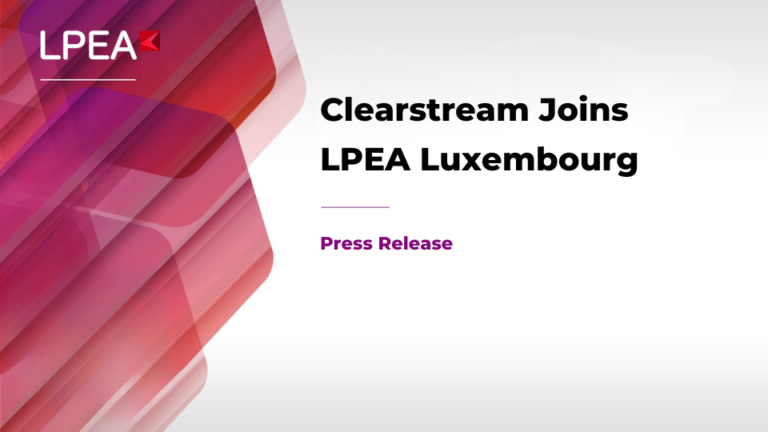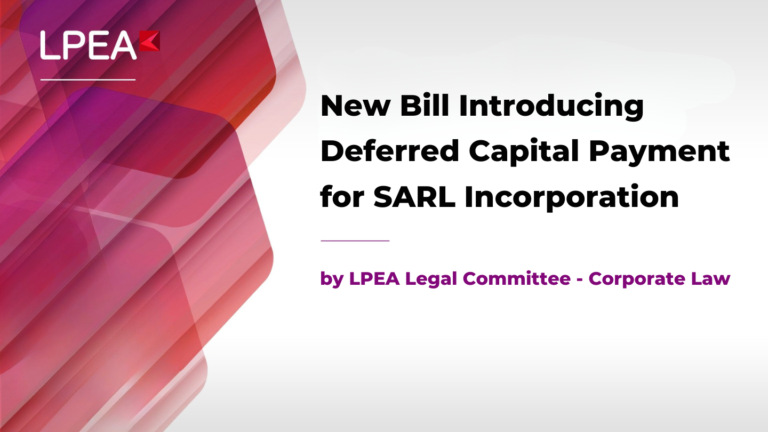By Jonathan Prince, Co-founder & CSO at Finologee
Digitalisation: do or die
According to most consulting companies, for many firms, digitalisation is a question of ‘evolve or die.’ Some even add that there is little hope of long-term survival for financial firms that cannot – or will not – embrace digital change. Customers are increasingly tech-savvy and are demanding more from their institutions than ever before: push-button transactions, and systems and processes that streamline necessary but traditionally cumbersome processes like payments, KYC and onboarding.
The financial services industry is sometimes considered slow to change or overly fond of manual processes, but the reality is most firms are keen to digitalise: after all, they are no strangers to technology. So, while so many firms want to embrace digitalisation, how can they facilitate its implementation? More importantly, how can digitalisation solve some of the most pressing issues for financial firms in Luxembourg?
DIGITALISATION IS NOT ABOUT AUTOMATION AND ADVANCEMENT FOR THE SAKE OF IT.
IT IS ABOUT SOLVING PROBLEMS AND MAKING PROCESSES
AND SYSTEMS MORE ROBUST AND EFFICIENT.
Jonathan Prince
The journey to digitalisation does not have to be navigated alone
As with any groundbreaking change, digitalisation can be daunting, especially when it will fundamentally change the way a business operates from the inside out.
Digitalisation is not about automation and advancement for the sake of it. It is about solving problems and making processes and systems more robust and efficient. Practically, the question is how fund managers are challenged and what is costing them time, money, manpower or risk. Only then will we show how one or more of our solutions can help solve those issues, and how that translates to a benefit for internal and external stakeholders.
Digitalisation also becomes more manageable when financial institutions understand that it is not something they have to undertake alone; a trusted digital partner may be necessary. Very few firms can digitalise themselves – especially at the level and speed their business needs. There are so many moving parts, such as building the technology choosing the right infrastructure or getting the right regulatory approvals that make it a very time-consuming and complex process. Many of the clients I work with say that they find digitalisation to be easier than they thought it would be, once they are working with the right ‘Support PFS’ Licence holder.
What does digitalisation look like in the Luxembourg financial services sector?
In the financial industry, regulations are becoming more complex, and meeting new regulations efficiently is always a challenge. As an example, one of the problems for many players is that the more complex the regulatory landscape is, the more time-consuming and labour-intensive the client onboarding process becomes.
There is also another factor at play: with digitalisation more and more commonplace, financial institutions relying solely on traditional approval and onboarding processes look increasingly clunky in the eyes of their clients. In a world where efficiency and speed are commodities, financial institutions face clients seeking out more advanced competitors, if they cannot show they are keeping up to speed with relevant digital solutions.
An ability to digitalise compliance and AML processes is just one of the ways to digitalise. For example, when the Insurance Distribution Directive (IDD) came into force in 2018, distributors of insurance- based products had to completely re-think the onboarding process. They are obliged to provide specific information to a customer before both parties can enter into an insurance contract, ensuring insurers sell policies that are consistent with their clients’ needs. The insurance company or distributor must obtain proof from the customer attesting that they have received such information and advice in relation to the proposed contract(s). Naturally, this proof must be obtained and appropriately documented.
Faced with the need to comply with IDD rules and knowing further regulations would surely follow, one of our clients – Luxembourg’s Foyer Group, turned to Finologee in search of a digital solution. The process started by determining their requirements to ensure the solution was tailored to meet the full scope of their needs. Foyer’s need for excellent usability, technical needs and regulatory constraints were all considered as part of the process. All in all it took less than two months to provide an efficient framework that met all the regulatory requirements regarding the pre-contract customer consent.
Foyer uses Finologee’s remote signing for their Advice Reports. Each report issued by the platform contains a LuxTrust Electronic Seal (E-Seal), certifying its content and with an encrypted timestamp of the creation date. After downloading the report, Foyer’s customers acknowledge reception and sign-off on the document, using a one-time password (OTP) sent to them via SMS. Today, Foyer’s remote signing service has a 92% conversion rate compared to the 33% they had in the past with the paper-based process.
DIGITALISATION ALSO BECOMES MORE MANAGEABLE WHEN FINANCIAL
INSTITUTIONS UNDERSTAND THAT IT IS NOT SOMETHING THEY HAVE TO
UNDERTAKE ALONE; A TRUSTED DIGITAL PARTNER MAY BE NECESSARY.
Jonathan Prince
Another client we worked with, Luxembourg’s Keytrade Bank, provides online brokerage services to resident and international investors. The bank, regulated by the CSSF and subject to Luxembourg’s banking and privacy laws, wanted to modernise its customer onboarding process, which was very traditional. The process was costing the bank time and – more importantly – customers, given manual form-filling was time consuming and required multiple emails, letters or visiting a branch.
Together we redesigned their entire client onboarding journey. Ultimately, Keytrade wanted help improving onboarding conversion and retention rates. They also wanted to reduce unnecessary administrative costs and reduce the amount of non-automated processes required to onboard each client. Knowing this, we designed a fully compliant, digital onboarding process for Keytrade. It is straightforward and easy to use, and Keytrade’s customers can use their smartphones, tablets or desktops to complete the process.
The digitised onboarding process allows Keytrade’s customers to complete an account opening questionnaire in about 20 minutes, compared to 2 to 3 weeks based on the previous process.
A system was designed to automatically analyse and carry out a risk assessment at each stage of the onboarding process. When the risk level is low, only essential documents and data are requested – for higher risk levels, users need to provide additional documentation, information and evidence. Keytrade’s customers can now choose a process with a guided scan and upload of an ID document validated against a picture of their face (‘face match’).
Digital opportunities
When it comes to financial services firms, companies should focus on the opportunities and solutions that await, rather than potential pitfalls. It offers the opportunity for financial services firms to benefit from less risk, better customer experience, more efficient processes and less manual work. Digitalisation is the ultimate win-win.’




